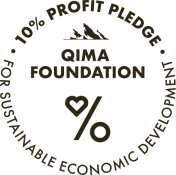16.
Himyar Subaih
Jury code : 4042
jury score :
88.55
Genetics :
Yemenia
Process :
Natural
lot size :
32.00LBS
traceability
VILLAGE :Bait Alal
REGION : Hayma Kharijiya
GOVERNORATE : Sana'a
ALTITUDE :2300masl
FLAVOUR PROFILE
Floral, Peach Jam, Nectarine, Grapefruit, Cassis, Honey Apple
Himyar Subaih
Himyar Subaih has spent a lifetime on the terraces of Bait Alal, one of Yemen’s most celebrated coffee communities. His first memories of farming are from childhood, when at eleven he joined his father in the harvest. “When I held the cherries in my hand,” he recalls, “it felt as if the land was welcoming me home.”
Today, Himyar tends 11 terraces with close to 500 Yemenia trees, supported by his family of twelve. Irrigation relies on spring water and reservoirs that collect the seasonal rains, while daily work is carried out with simple tools inherited through generations. Despite the challenges of rising costs, shifting weather, and declining yields, he plants 50 new seedlings every year, driven by the belief that the farm must continue to grow for his children and grandchildren.
His lot was naturally processed at Qima’s cherry processing centre in the village, where careful drying and monitoring bring clarity and depth to the flavours. The result is a coffee that reflects both its highland origin and Himyar’s dedication: floral and fruit-forward, layered with stone fruit and citrus.
Qima Coffee has partnered with Himyar since 2019, working alongside his efforts to preserve and strengthen a family tradition. For him, farming is not simply work but a bond. “When I look at my farm today,” he says, “it’s like watching one of my sons grow up.

